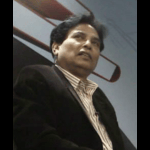Education sector’s slow decay has a lot to do with the tendency of centralized grip by the bureaucrats in the ministry

News broke recently that Dr. Mohammad Azad Khan, a once-obscure political science professor from Jamalpur College, has been appointed Director General of the Directorate of Secondary and Higher Education (DSHE)--the highest-ranking position in Bangladesh’s education cadre.
The announcement was met with the usual polite headlines and routine congratulations. But for those of us who have spent decades inside government colleges, the appointment prompts more fatigue than fanfare.
I’ve taught for 35 years–long enough to know what it means to survive, not thrive, in Bangladesh’s public education system.
Teachers in many government colleges outside of Dhaka live in quiet vulnerability, often at the mercy of their students and local politics. Without a commanding personality, they are routinely undermined, mistreated, or worse.
I taught for years at Anandomohan College in Mymensingh (and later became its Principal), and I know Jamalpur College well. The saying goes, “Let birth be where it may, but let deeds be good.”
But in today’s Bangladesh, good deeds rarely make it through the gates of the Ministry of Education.
Which is why no one really talks about education anymore–not in earnest. The entire sector is in such disrepair, such systemic decay, that it’s easier to look away.
What should be a pillar of national development has become a dumping ground of neglect.
And the Directorate of Secondary and Higher Education smells of long-unattended rot. But having served in a key post (director) there, I can tell you that DSHE is only partially to blame.
For every three parts of dysfunction at DSHE, seven originate from the Ministry of Education itself.
The Ministry has hollowed out DSHE’s responsibilities, parceling them out to layers of bureaucrats who rarely understand–or care about–the classroom.
Oversight is centralized, but accountability is scattered. A former Dhaka University professor, C.R. Abrar, currently serves as the education advisor in the interim government and I’ve spoken with him about this.
He seems like a decent, well-meaning man. But good intentions don’t move policy. They evaporate quickly in the face of entrenched bureaucratic self-interest.

What needs to be
changed?
In Bangladesh, "being good" isn’t enough. You need to be good and unyielding–something the system is carefully designed to punish.
The deeper issue isn’t about who holds what position, but whether the structure allows any meaningful change at all.
Years ago, I heard a story about Khawaja Nazimuddin, a former Prime Minister of Pakistan. When faced with a difficult decision, he would think long into the night, sometimes until he fell asleep with his head on the file. Thus was born the term Nazimuddin syndrome.
The education advisor, in our meeting, casually mentioned that he was so overwhelmed with work, he didn’t have time to eat. I had also gone hungry that day, waiting far too long for the conversation to begin.
I told him plainly: if your busyness isn't producing results, then it's not work–it's just noise. Leadership means defining your purpose, not drowning in disorganization.
The DSHE was created to shoulder a significant share of the education system’s responsibilities. It must be allowed to do exactly that.
Instead, all authority is hoarded by the Ministry–smothering efficiency, stifling initiative. The National Curriculum and Textbook Board has its own job. The Education Boards have theirs.
Why this compulsive interference from the top? Why should one ministry gatekeep the entire sector?
I suggested the advisor do something simple: make himself available to the DSHE’s Director General, and visit the Directorate and the Textbook Board from time to time.
Visibility matters. Because leadership isn’t just about declarations–it’s about presence. If senior officials showed up where the real work happens, those institutions might stir from bureaucratic stupor.
He nodded and said my words were helpful. Whether he meant it—or whether he remembers them—is another matter.
I began this reflection with the new DG and I’ll end with him. Teachers across Bangladesh’s government schools and colleges harbor deep frustration with the DG’s office. Some wonder aloud whether the man at the helm even understands the scope of his mandate.
Is he ready for the role—or merely occupying a chair? He comes from a modest academic background, and now finds himself in unfamiliar waters. He must learn to swim, fast.
This role is not ceremonial. It is consequential. The DG is the final recourse for thousands of teachers across the country. They need to be heard—and he must be the one who listens. More than that, he must act.
The burden of leadership is not just to represent, but to reform. Whether he will rise to the challenge remains to be seen.
—
HM Munir-Uz-Zaman is a former Principal of the Anandamohan College, Mymensingh.

